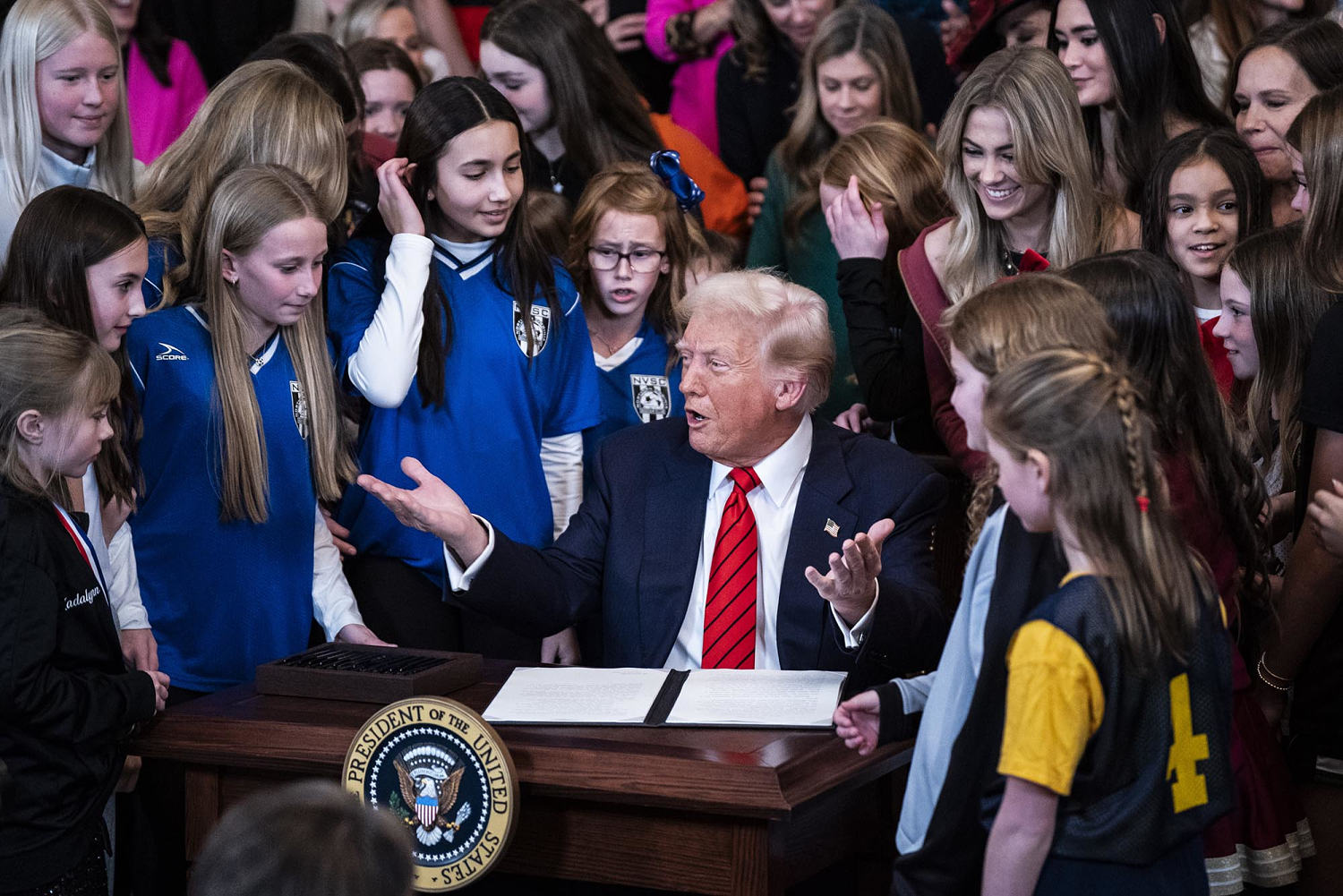https://theworldfinancialforum.com/participate/

Women
Women :The Department of Homeland Security will update visa policies to prevent transgender women from traveling to the U.S. to participate in elite women’s sporting events.
U.S. Citizenship and Immigration Services issued guidance Monday intended to bar trans women athletes from obtaining “extraordinary ability” visas to compete in female sports, as was first reported by the conservative news website The Daily Wire. The guidance builds off of an executive order President Doanld Trump issued during the early weeks of his presidency that intended to bar trans women from competing in female sports.
The guidance doesn’t use the word transgender or refer to trans women, but rather refers to “male athletes” who seek to compete in women’s sports.
Matthew Tragesser, a spokesperson for USCIS, said in a statement that the agency is “closing the loophole for foreign male athletes whose only chance at winning elite sports is to change their gender identity and leverage their biological advantages against women.”
“It’s a matter of safety, fairness, respect, and truth that only female athletes receive a visa to come to the U.S. to participate in women’s sports,” Tragesser said in the statement. “The Trump Administration is standing up for the silent majority who’ve long been victims of leftist policies that defy common sense.”
The policy update applies to three visa categories for individuals who possess “extraordinary ability” in science, art, education, business or athletics. It also affects national interest waivers, which allow applicants to self-petition to waive the labor certification for a green card if they can show that their work serves the national interest.
The updated guidance clarifies that USCIS “considers the fact that a male athlete has been competing against women as a negative factor” in determining whether they are among the top in the sport.
The guidance adds that it is not in the national interest of the U.S. to waive the labor certification requirement for trans women athletes “whose proposed endeavor is to compete in women’s sports.”
USCIS did not respond to a request for comment regarding how many people could be affected by the new policy or whether there are recent examples of trans female athletes traveling to the U.S. under the affected visa categories.
Within the National Collegiate Athletic Association, the nonprofit group that regulates college athletics, about 25,000 international student athletes compete in NCAA sports out of the more than 500,000 total who compete each year, according to the association. While it’s unclear how many NCAA athletes are trans, the association’s president, Charlie Baker, told a Senate committee in December that he is aware of fewer than 10.
The USCIS policy update may have affected athletes who planned to travel to Los Angeles for the 2028 Summer Olympics; however, the U.S. Olympic and Paralympic Committee barred trans women from competing in female sports last month.
Only a handful of trans athletes have ever competed in the Olympics. Weightlifter Laurel Hubbard became the first out trans athlete to compete in the Olympics in the Tokyo Games in 2021, though she did not medal. American skateboarder Alana Smith and Canadian soccer star Quinn also competed in the Tokyo Games, and Quinn became the first nonbinary and trans athlete to ever medal when their team won gold that year.
In a move drawing both criticism and support, the Trump administration has barred 15 transgender women athletes from obtaining the United States’ “extraordinary ability” visas, a category typically granted to individuals who have achieved exceptional success in sports, arts, science, or other fields.
Officials from the Department of Homeland Security stated that the decision was based on newly revised eligibility criteria, which they claim are designed to ensure fairness in sports and maintain “biological integrity” in competitive categories. The administration argued that participation by trans women in certain women’s sporting events could create an uneven playing field, a point that has been central to ongoing debates in the sports community.
Critics, however, argue that this move is discriminatory and undermines the accomplishments of transgender athletes who have met both international sporting standards and U.S. visa requirements. LGBTQ+ advocacy groups point out that many of these athletes have undergone years of hormone therapy and meet the eligibility criteria established by organizations like the International Olympic Committee and World Athletics.
Human rights advocates warn that such policies could discourage inclusivity in sports and limit the ability of talented athletes to compete at the highest levels. “This is not just about visas — it’s about recognition, dignity, and the right to compete on equal terms,” said one spokesperson for a trans athletes’ advocacy group.
Supporters of the decision, on the other hand, say it aligns with broader moves by the administration to set clear boundaries in sports participation based on biological sex. They claim it protects fairness for cisgender women athletes and avoids potential disputes in international competitions.
The ban is expected to face legal challenges in U.S. courts, with civil rights lawyers preparing to contest its constitutionality under anti-discrimination laws.